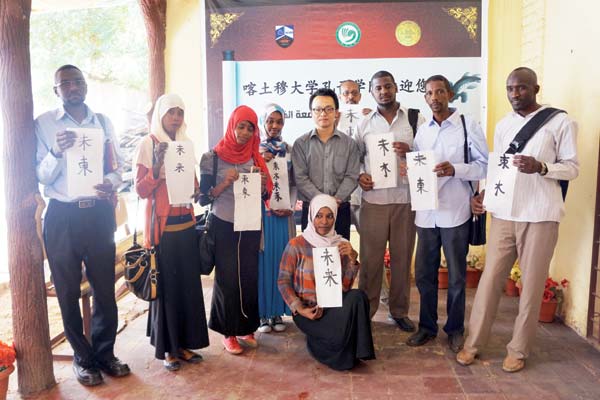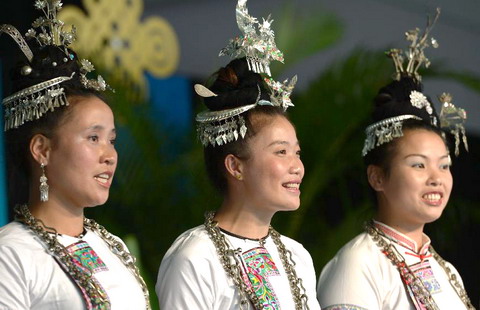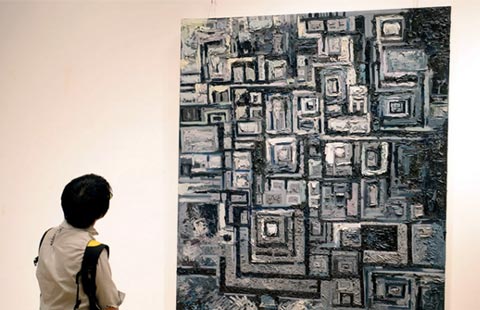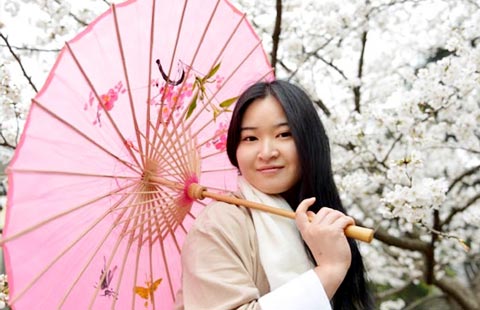Bonds of wisdom
By Todd Balazovic ( China Daily ) Updated: 2014-05-25 07:53:24
|
 Ma Pengcheng and his students at the Confucius Institute at the University of Khartoum, Sudan. Provided to China Daily |
Vermaak attributes much of the success to the Hanban's continued support, even four years after the center was opened.
As outlined by the enthusiastic expansion plans for Rhodes, the benefits for a university receiving funding from the Hanban are vast.
According to reports, host universities can receive between 315,000 yuan ($50,000) and $100,000 as initial funds to help establish the center, and also an annual upkeep fund based on program size.
But the benefits go both ways, Vermaak says.
"You should not think of Confucius Institutes as one-way conduits. They act as important meeting places and the benefits go both ways," he says.
"Chinese are working hard to internationalize and to gain as much experience as possible from other parts of the world. We are playing an important role in helping them do that."
Following their partnership with Rhodes University, the Guangzhou-based school established an Institute for African Studies, largely because of the support Rhodes provided.
Rhodes has also provided guest professors to China, who teach in Shandong's provincial capital Jinan, Vermaak says.
While many schools look to the Confucius Institute as a way to establish language programs, it is the great potential for academic exchange that benefits those with Chinese-language instruction already in place.
This was what prompted Stellenbosch University to integrate its Confucius Institute into the school's postgraduate and international office in 2009.
Home to the Center for Chinese Studies, one of the longest-standing China-Africa research centers, Kotze says the Confucius Institute equipped the school to forge a platform for deeper academic ties with Chinese universities.
"It creates an environment at the university where we can develop our relationships and develop a better understanding of China," he says.
"(Confucius Institutes) assist in bringing in delegations, assist in advising on what level of engagement we should have with a specific university and help build our university's bilateral relations with Chinese institutions."
|
|
|
|
|
|
|
|





















 Raymond Zhou:
Raymond Zhou: Pauline D Loh:
Pauline D Loh: Hot Pot
Hot Pot Eco China
Eco China China Dream
China Dream China Face
China Face





